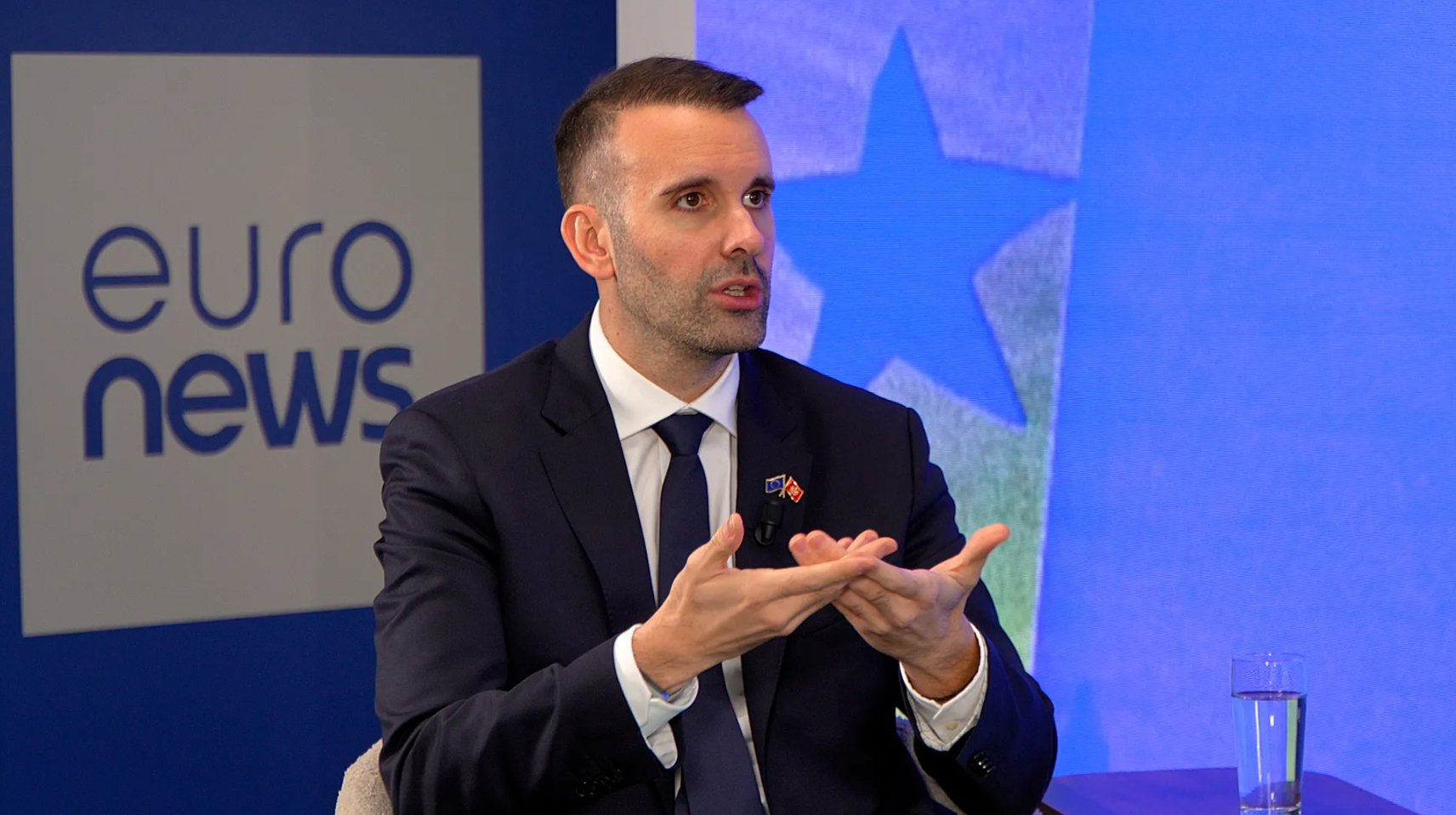“Montenegrin Prime Minister Milojko Spajic has said that his country intends to tighten entry rules for Russians “very soon” to bring its visa policy in full compliance with European Union requirements.”, — write: www.pravda.com.ua
 Miloyko Spaych. Screenshot from the video
Miloyko Spaych. Screenshot from the video Source: Spaich in an interview with the publication Euronews
Details: During the interview, the head of the Montenegrin government emphasized the country’s strategic goal of joining the European Union by 2028.
Advertising:
To achieve this result, the country is obliged to adhere to the EU’s Common Foreign and Security Policy, which is a key condition for membership. Spaich emphasized that appropriate measures to change the visa regime for Russians will be taken “very soon”.
Currently, there is a simplified border crossing regime between Montenegro and Russia: Russian citizens have the right to stay in the territory of the Balkan country without a visa for up to 30 days if they have a valid foreign passport. However, this practice contradicts the latest decisions of Brussels.
In early November, the EU tightened visa rules for Russians in response to threats of hybrid attacks. According to the new rules, citizens of the Russian Federation have lost the right to receive multiple-entry visas and can now only apply for single-entry permits, which requires a new application for each trip.
Spajic noted that, even without the official status of an EU member and the corresponding advantages, Montenegro already follows the rules as a full member state of the community. This also applies to the sanctions policy against Russia, which is part of the EU’s framework program for coordinating foreign policy and security measures.
In October, Montenegro already took steps in this direction, canceling visa-free programs for citizens of Armenia, Uzbekistan, Kuwait and Egypt in order to harmonize its legislation with the European one.
The Prime Minister also emphasized the need for diplomatic work with all members of the European Union. According to him, it is necessary to convince all 27 member states that it is in their national interests to see Montenegro as part of the union.
“We need all 27 member states to feel, sincerely believe, that it is in their national interests to see Montenegro as part of the EU. We have to convince them of this. We cannot relax,” said Spajic.
Spajić admitted that some countries are more conservative about the ideas of further expansion, so the Montenegrin government plans to work hard on strengthening relations with these partners.
Particular attention was paid in the interview to the issue of the rule of law, which is traditionally a subject of close attention in relation to the Balkan countries. The Prime Minister reported on the progress in reforms, in particular the closing of Chapter 5 of the negotiation process, which concerns public procurement.
“Again, we have to do much more. We have to demonstrate that we are doing a great job in the context of the rule of law,” Spaich emphasized.
